 * Image source: same as the link
* Image source: same as the link_______________________________________
*Text thanks to Mr. Go Gwon-Il
* On the SPARK missile, see here
* 스파크 미사일에 대해서 여기를 보시길. (고권일 선생님 링크 제공)___________________________________________
Korea Times
East Asia’s military buildup sparks concern
Jan. 17, 2011
By Kang Hyun-kyung
Some defense watchers note that East Asian nations are becoming more conservative of late, voicing concern that this could raise the possibility of an arms buildup in the region.
They allege that an assertive China and provocative North Korea together are playing a role in changing the security landscape, adding this could motivate regional players to upgrade their weapons’ capability.
The concern was addressed days before U.S. President Barack Obama will meet with his Chinese counterpart Hu Jintao in Washington to discuss issues of mutual concern.
The Obama-Hu summit coincides with a growing concern in Seoul over the Cold War-like confrontations between the blocs of South Korea, the United States and Japan, and China and North Korea looming large on the Korean Peninsula.
“When China bashes Japan about the islands (Senkaku in Japanese and Daioyu in Chinese); that has a strong impact on Japanese behavior and also on Korean behavior,” a U.S. defense expert told The Korea Times last week on condition of anonymity.
“North Korea on the nuclear front especially prompts the Japanese to think that a missile defense system is good, but I think Chinese behavior is much more important in shaping the general need for security in the region.”
The expert noted that there was a possibility of an arms race in East Asia.
His remarks came days after photos and images of a Chinese radar-evading stealth fighter, the J-20, surfaced.
The Chinese version of “a show of force” came at a time when Seoul and Tokyo agreed to seek their first-ever bilateral military agreement after Washington called on the two sides to work closely to deter North Korean aggression.
Washington reportedly wants Japan’s Self-Defense Forces to take a larger role in regional security.
Upgrading missile defense
While seeking military ties with Japan, the South Korean military announced a plan to deploy Israeli-built precision-guided anti-tank missiles on Yeonpyeong Island in February. The island was devastated by a deadly North Korean attack last November.
The embryonic trilateral military partnership among South Korea, Japan and the United States appears to have made China uncomfortable.
William Tobey, senior fellow at the Harvard University Belfer Center for Science and International Affairs, told The Korea Times last week that some Chinese have complained that the ties were aimed at countering China.
Tobey travelled to China before arriving in Seoul. The former U.S. National Security Council staffer met with several academics there and made the point that China needed to do more to rein in North Korea as the latter’s provocations work against its interests.
Earlier, Japan unveiled plans to field three additional Patriot advanced missile interceptor units and expedite production of Aegis missile defense warships.
Although Japan said the plan was focused on North Korea after it sank the warship Cheonan in March, unveiled an enriched uranium program and shelled Yeonpyeong, China reacted nervously.
A Chinese diplomat was quoted as saying in December that China will have no other choice but to respond by enhancing its own military capabilities.
China’s unveiling of the new stealth fighter came while U.S. Defense Secretary Gates was visiting the country.
The U.S. defense chief told reporters that he learned “the test spin of the stealth fighter had absolutely nothing to do with the visit and had been a pre-planned test.”
However, Gates expressed worries over Beijing’s progress in developing anti-ship cruise and ballistic missiles as he believed this could potentially target U.S. vessels in East Asia.
Asked about Chinese motives behind the timing of the test of the fighter, William Tobey speculated there might be a rift among Chinese policymakers over the decision.
“It’s totally difficult to speculate on their motives. The Chinese government may not be united. It may be that some people wanted to point this out regardless of what President Hu wanted and took advantage of that timing to reveal their firepower,” he said.
Tobey stressed that North Korea’s bad behavior increases the need for missile defense and this makes for a continuing presence of U.S. troops on the Korean Peninsula.
It may increase the proliferation of nuclear weapons and other things that run counter to Chinese security interests, he noted, adding it was less North Korea but “the China factor” behind East Asian nations’ interests in missile systems.
“I think Chinese behavior last year has also been provocative. It’s not clear why. Whether the People’s Liberation Army has been enhanced or whether there is a succession crisis in Beijing. Everyone is moving to the right,” the U.S. expert said.
Xi Jinping, vice president of China, was appointed last October as one of the vice chairmen of the Central Military Commission, a move seen as a key step toward his succession in two year’s time.
Xi is reportedly on track to become Communist Party general secretary when President Hu Jintao’s term ends in 2012 and President in 2013.
Military buildup: 한중일, 미사일 방어체제 강화
한반도 긴장이 계속되면서 동아시아 국가들간 군비증강 움직임이 공통적으로 포착되고 있다. 미국 국방 전문가들은 한국, 중국, 일본에서 미사일 방위체제에 대한 관심이 증대되고 있는 점에 주목하고 있으며, 일부는 이러한 움직임이 탈냉전 시대에 군비경쟁으로 이어질 가능성도 배제할 수 없다고 지적한다.
한국은 스파이크 미사일을 연평도에 배치할 예정이며, 중국은 게이츠 미국방장관이 중국을 방문한 시점에 신형 스텔스 전투기를 선보이며 긴장을 조성한 바 있다.
일본은 작년 12월 북한의 도발에 대응하기 위해 미사일 체제를 강화할 것임을 밝힌 바 있다.
미국 전문가들은 북한의 한반도 도발과 중국이 작년 센카쿠 열도를 둘러싼 영토분쟁을 통해 보여준 공세적인 자세가 일본이 미사일 방어체제에 관심을 갖는 이유라고 분석한다.
Korea Times
East Asia’s military buildup sparks concern
Jan. 17, 2011
By Kang Hyun-kyung
Some defense watchers note that East Asian nations are becoming more conservative of late, voicing concern that this could raise the possibility of an arms buildup in the region.
They allege that an assertive China and provocative North Korea together are playing a role in changing the security landscape, adding this could motivate regional players to upgrade their weapons’ capability.
The concern was addressed days before U.S. President Barack Obama will meet with his Chinese counterpart Hu Jintao in Washington to discuss issues of mutual concern.
The Obama-Hu summit coincides with a growing concern in Seoul over the Cold War-like confrontations between the blocs of South Korea, the United States and Japan, and China and North Korea looming large on the Korean Peninsula.
“When China bashes Japan about the islands (Senkaku in Japanese and Daioyu in Chinese); that has a strong impact on Japanese behavior and also on Korean behavior,” a U.S. defense expert told The Korea Times last week on condition of anonymity.
“North Korea on the nuclear front especially prompts the Japanese to think that a missile defense system is good, but I think Chinese behavior is much more important in shaping the general need for security in the region.”
The expert noted that there was a possibility of an arms race in East Asia.
His remarks came days after photos and images of a Chinese radar-evading stealth fighter, the J-20, surfaced.
The Chinese version of “a show of force” came at a time when Seoul and Tokyo agreed to seek their first-ever bilateral military agreement after Washington called on the two sides to work closely to deter North Korean aggression.
Washington reportedly wants Japan’s Self-Defense Forces to take a larger role in regional security.
Upgrading missile defense
While seeking military ties with Japan, the South Korean military announced a plan to deploy Israeli-built precision-guided anti-tank missiles on Yeonpyeong Island in February. The island was devastated by a deadly North Korean attack last November.
The embryonic trilateral military partnership among South Korea, Japan and the United States appears to have made China uncomfortable.
William Tobey, senior fellow at the Harvard University Belfer Center for Science and International Affairs, told The Korea Times last week that some Chinese have complained that the ties were aimed at countering China.
Tobey travelled to China before arriving in Seoul. The former U.S. National Security Council staffer met with several academics there and made the point that China needed to do more to rein in North Korea as the latter’s provocations work against its interests.
Earlier, Japan unveiled plans to field three additional Patriot advanced missile interceptor units and expedite production of Aegis missile defense warships.
Although Japan said the plan was focused on North Korea after it sank the warship Cheonan in March, unveiled an enriched uranium program and shelled Yeonpyeong, China reacted nervously.
A Chinese diplomat was quoted as saying in December that China will have no other choice but to respond by enhancing its own military capabilities.
China’s unveiling of the new stealth fighter came while U.S. Defense Secretary Gates was visiting the country.
The U.S. defense chief told reporters that he learned “the test spin of the stealth fighter had absolutely nothing to do with the visit and had been a pre-planned test.”
However, Gates expressed worries over Beijing’s progress in developing anti-ship cruise and ballistic missiles as he believed this could potentially target U.S. vessels in East Asia.
Asked about Chinese motives behind the timing of the test of the fighter, William Tobey speculated there might be a rift among Chinese policymakers over the decision.
“It’s totally difficult to speculate on their motives. The Chinese government may not be united. It may be that some people wanted to point this out regardless of what President Hu wanted and took advantage of that timing to reveal their firepower,” he said.
Tobey stressed that North Korea’s bad behavior increases the need for missile defense and this makes for a continuing presence of U.S. troops on the Korean Peninsula.
It may increase the proliferation of nuclear weapons and other things that run counter to Chinese security interests, he noted, adding it was less North Korea but “the China factor” behind East Asian nations’ interests in missile systems.
“I think Chinese behavior last year has also been provocative. It’s not clear why. Whether the People’s Liberation Army has been enhanced or whether there is a succession crisis in Beijing. Everyone is moving to the right,” the U.S. expert said.
Xi Jinping, vice president of China, was appointed last October as one of the vice chairmen of the Central Military Commission, a move seen as a key step toward his succession in two year’s time.
Xi is reportedly on track to become Communist Party general secretary when President Hu Jintao’s term ends in 2012 and President in 2013.
Military buildup: 한중일, 미사일 방어체제 강화
한반도 긴장이 계속되면서 동아시아 국가들간 군비증강 움직임이 공통적으로 포착되고 있다. 미국 국방 전문가들은 한국, 중국, 일본에서 미사일 방위체제에 대한 관심이 증대되고 있는 점에 주목하고 있으며, 일부는 이러한 움직임이 탈냉전 시대에 군비경쟁으로 이어질 가능성도 배제할 수 없다고 지적한다.
한국은 스파이크 미사일을 연평도에 배치할 예정이며, 중국은 게이츠 미국방장관이 중국을 방문한 시점에 신형 스텔스 전투기를 선보이며 긴장을 조성한 바 있다.
일본은 작년 12월 북한의 도발에 대응하기 위해 미사일 체제를 강화할 것임을 밝힌 바 있다.
미국 전문가들은 북한의 한반도 도발과 중국이 작년 센카쿠 열도를 둘러싼 영토분쟁을 통해 보여준 공세적인 자세가 일본이 미사일 방어체제에 관심을 갖는 이유라고 분석한다.

![[URGENT PLEA: In Update] EMERGENCY in GANGJEONG Since AUG. 24, 2011](http://2.bp.blogspot.com/-3iz8k-USXVY/TlmRYhhIYtI/AAAAAAAAL2c/9dbF85ZIkIs/s227/jejusit.jpg)

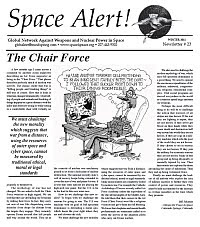

![[Solidarity from Japan for the Jeju] 253 individuals and 16 groups/organizations](http://2.bp.blogspot.com/_gnM5QlRx-4c/TR_YeNVE1yI/AAAAAAAAHWQ/ARyf6oQN0S0/S227/jeju_12_10j.jpg)
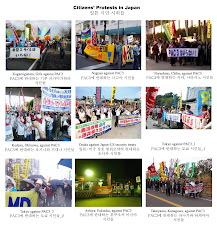
![[Translation] Korean organizations' statement: Immediately cancel the joint ROK-US drill Nov 26](http://2.bp.blogspot.com/_gnM5QlRx-4c/TPOE8VKXHFI/AAAAAAAAGlM/8lryt-8sFjc/S227/1.jpg)
![HOT! [Hankyoreh Hani TV] Beneath the Surface: the investigation into the sinking of the Cheonan](http://4.bp.blogspot.com/_gnM5QlRx-4c/TOI83qht8aI/AAAAAAAAGXU/22SW6Q5ntV8/S227/HaniTV%2BCheonan.gif)

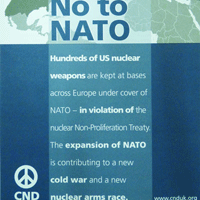

![[Translation]Statement against illegal inspection and unjust lay-off by the Kunsan USAFK!(Nov_2010)](http://4.bp.blogspot.com/_gnM5QlRx-4c/TOPLsVkZMqI/AAAAAAAAGZs/3YnnckIyAaY/S227/gunsan%2Bprotest.gif)
![[Translation] Korean organizations' statement against dispatching special force to the UAE on Nov.](http://4.bp.blogspot.com/_gnM5QlRx-4c/TOP95zHXlCI/AAAAAAAAGak/E0Ug1XtUFfM/S227/antiwarpeace.jpg)
![[Translation] Stop, Joining MD!: South Korean activists' statement and writing on Oct. 25, 2010](http://3.bp.blogspot.com/_gnM5QlRx-4c/TOP7Es4_2sI/AAAAAAAAGac/eWVMPD-U4p0/S227/StopMD.jpg)
![[In Update] People First, NO G-20 (Nov. 6 to 12, Korea)](http://2.bp.blogspot.com/_gnM5QlRx-4c/TJd53XBzHlI/AAAAAAAAFQo/ldO9JPE3eqo/S227/left21_G20.jpg)
![[International Petition] Stop US helipad plan in Okinawa to save great nature](http://4.bp.blogspot.com/_gnM5QlRx-4c/TKC2AHRNzBI/AAAAAAAAFUo/yGWXODTw_uM/S227/yanbaru_w.jpg)

![[Global Network] against the first launch of Quasi-Zenith Satellite, Japan, on Sept. 11, 2010](http://4.bp.blogspot.com/_gnM5QlRx-4c/TIowa1boy4I/AAAAAAAAFDI/82rAi98uq-c/S227/Qzss-45-0_09.jpg)

![[In update] Some collections on the Koreans’ protests against the sanction & war on Iran](http://4.bp.blogspot.com/_gnM5QlRx-4c/TJMvke6t8zI/AAAAAAAAFO4/tamQ8LUnOOA/S227/No+Sanction+on+Iran.jpg)
![[Three International Petitions] to End the Korean war and peace treaty(or peace resolution)](http://1.bp.blogspot.com/_gnM5QlRx-4c/THef7bzWxYI/AAAAAAAAE44/wwdzSDfYhdw/S227/border.jpg)
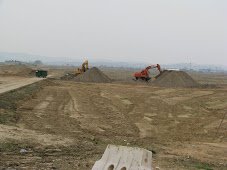


![[Collection of Documents] No Base Learning and Solidarity Program_Korea(June 14 to 20, 2010)](http://1.bp.blogspot.com/_gnM5QlRx-4c/TCTvVuN8NeI/AAAAAAAAEek/8vBJVaHdk10/S227/No-Base-banner.jpg)
![Site Fwd:[John Hines] A U.S. Debate coach’s research trip on the Issues of Korea](http://3.bp.blogspot.com/_gnM5QlRx-4c/TINCO36mzzI/AAAAAAAAE_w/Rds12NcBOXM/S227/Jeju-Peace-Tour.jpg)


![[News Update] Struggle Against the Jeju Naval Base since Jan. 18, 2010](http://1.bp.blogspot.com/_gnM5QlRx-4c/S1vvWaP25uI/AAAAAAAACkg/QvpW1tgOlKM/S226/scrum1.jpg)


![[Urgent] Please spread the Letter!: There was no Explosion! There was no Torpedo! (May 26, 2010)](http://4.bp.blogspot.com/_gnM5QlRx-4c/S_9JmsKEU7I/AAAAAAAAEP8/sAWjSPqxzUI/S227/grounded.jpg)
![Text Fwd: [Stephen Gowans]The sinking of the Cheonan: Another Gulf of Tonkin incident](http://1.bp.blogspot.com/_gnM5QlRx-4c/TAL_FtYKQ-I/AAAAAAAAERE/NEEMijiEcRM/S227/lee-myung-bak.jpg)
![[Japan Focus]Politics in Command: The "International" Investigation into the Sinking of the Cheonan](http://1.bp.blogspot.com/_gnM5QlRx-4c/TBMJ2syJzyI/AAAAAAAAEZU/uTYZccU5vyk/S227/wen_jiabao_and_lee_myungbak.png)
![[Japan Focus] Who Sank the SK Warship Cheonan? A New Stage in the US-Korean War and US-China](http://2.bp.blogspot.com/_gnM5QlRx-4c/S_iQ2vE5ZpI/AAAAAAAAEOU/Oo1SPcAe8FE/S227/buoy_map.gif)
![[Updated on 12/13/10] [Translation Project] Overseas Proofs on the Damages by the Military Bases](http://4.bp.blogspot.com/_gnM5QlRx-4c/S-qSj59gPLI/AAAAAAAAEGM/mwjlFtPE-jo/S227/missile.jpg)
![[International Petition] Close the Bases in Okinawa](http://3.bp.blogspot.com/_gnM5QlRx-4c/S8-z3DYNwNI/AAAAAAAADo4/OswTSchK09M/S227/2.jpg)

![[In Update]Blog Collection: No Korean Troops in Afghanistan](http://4.bp.blogspot.com/_gnM5QlRx-4c/SwnlLD9IewI/AAAAAAAAB9E/oUPssnpNidA/S226/No-Troops-to--Afghanistan.jpg)
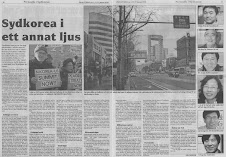

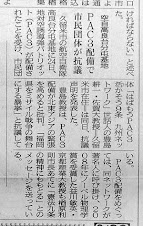

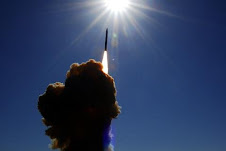



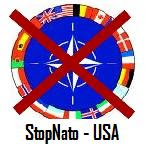


No comments:
Post a Comment